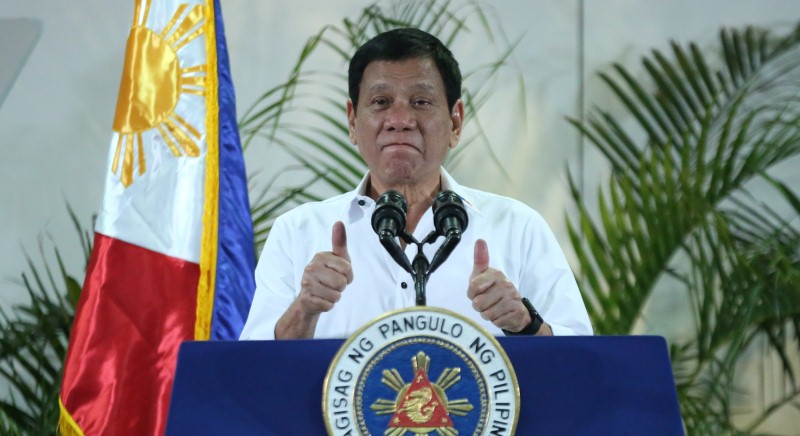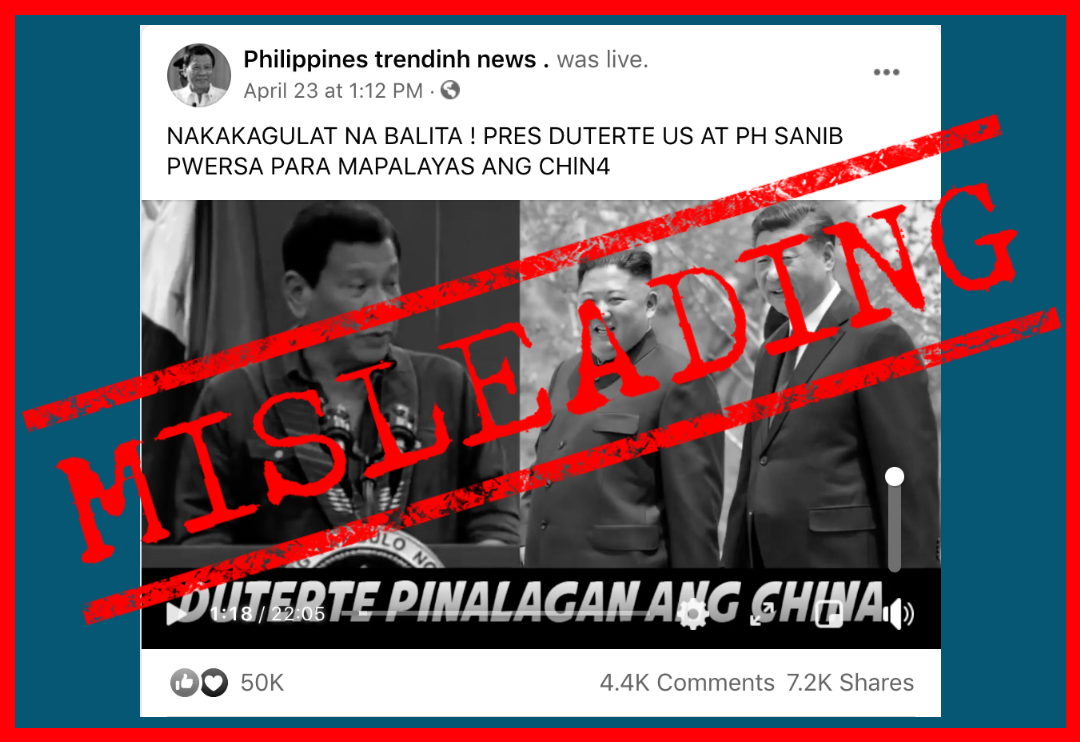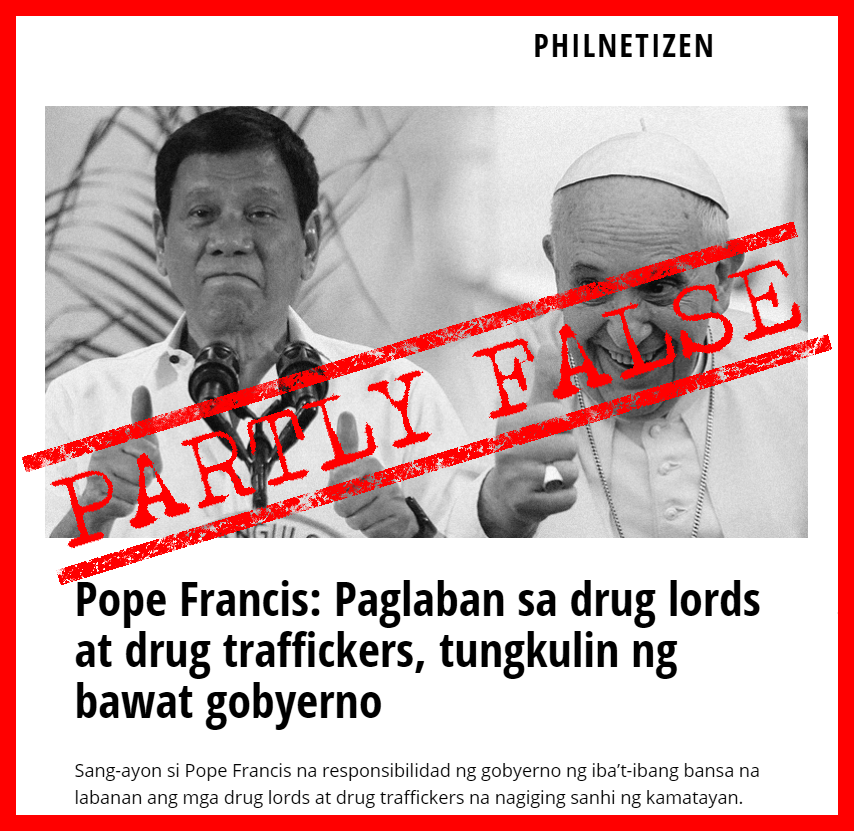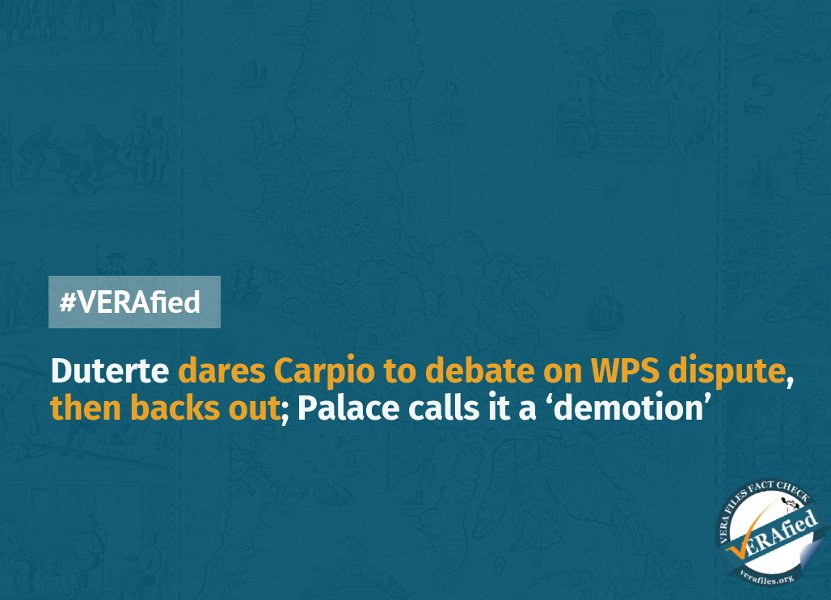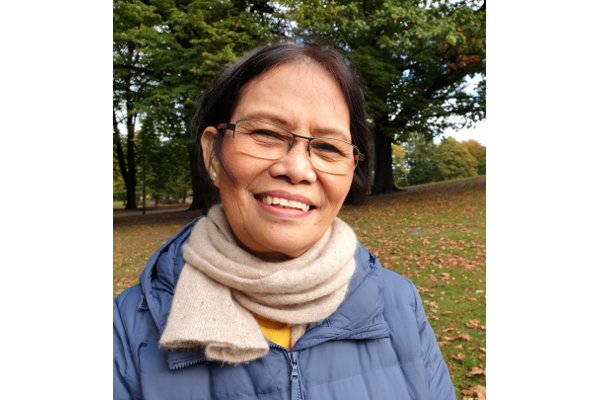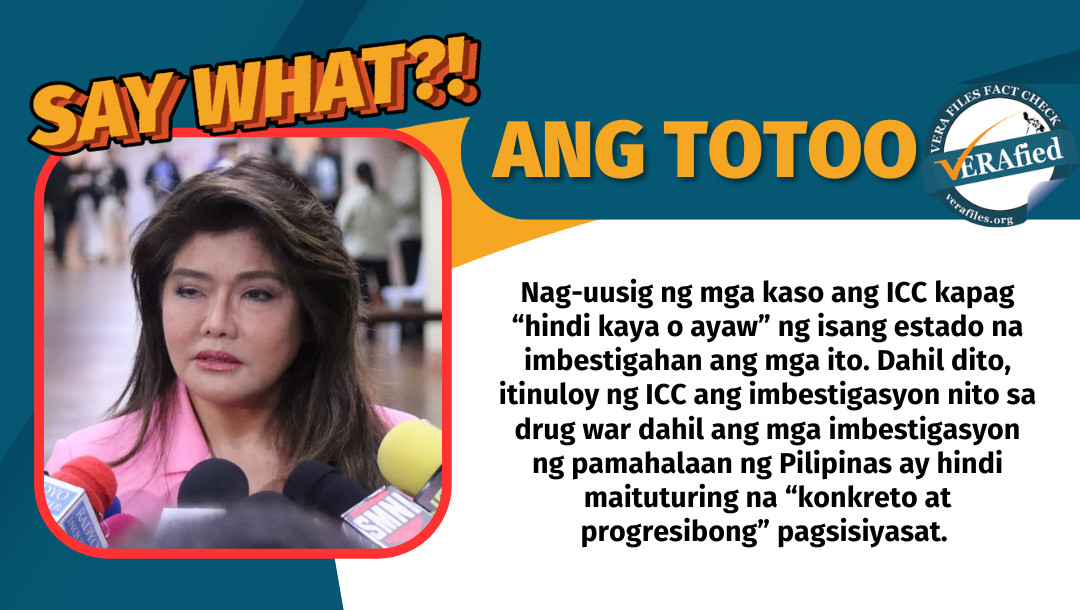FOR the Philippines, the second half of 2016 meant listening to President Rodrigo Duterte’s press conferences, often at midnight, and his curses and threats against world leaders, corrupt politicians, and drug lords.
But all these are not to be taken literally, his spokesperson Ernesto Abella once said. For him, all Filipinos need in decoding the president is their “creative imagination.”
How do we interpret the president? Let his Cabinet men count the ways. Here’s a list:
1. War on drugs: Kill, kill, kill?
Duterte admitted on Dec. 16 he killed three people while he was Davao City mayor.
“I killed about three of them, because there were three of them. I don’t really know how many bullets from my gun went inside their bodies. It happened. I said, I cannot lie about it.”
(Source: BBC ambush interview of Duterte in Singapore, Dec. 16, 2016. Watch from 0:00 to 0:11)
But in a BBC interview on the same day, Press Secretary Martin Andanar came to the president’s defense, saying Duterte was just “instilling fear in the minds of the criminals.”
“That is the style of the president ever since. Even when he was a mayor he would talk that way because he would like to instill fear in the minds of the criminals.”
(Source: BBC interview of Andanar, Dec. 16, 2016. Watch from 0:17 to 0:29)
On Sept. 30, the president drew more attention from the international media and condemnation from human rights groups when he likened himself to Adolf Hitler in waging his war on drugs.
“Hitler massacred three million Jews. Now, there is three million, there’s three million drug addicts. There are. I’d be happy to slaughter them.”
(Source: Duterte’s arrival speech from Vietnam in Davao City, Sept. 30, 2016. Watch from 14:43 to 14:58)
Duterte apologized a few days later, but not before Malacañang issued a statement, saying the president did not mean to offend the Jews.
“Hitler murdered three million innocent civilians whereas Duterte was referencing to his ‘willingness to kill’ three million criminal drug dealers — to save the future of the next generation and the country. Those are two entirely different things.”
(Source: Statement of Abella, Oct. 1, 2016)
2. West Philippine Sea: Ours or theirs?
The president on Dec. 19 said he will set aside the ruling of the international arbitral tribunal, even after it declared the Philippines has exclusive sovereign rights to the West Philippine Sea.
“In the play of politics now, I will set aside the arbitral ruling. I will not impose anything on China.”
(Source: Arrival in Davao from Cambodia, Davao City, Dec. 16, 2016. Watch from 35:53 to 35:59)
But on the same day Foreign secretary Perfecto Yasay Jr. had to issue a clarification, saying one of the president’s priorities is to “revitalize bilateral ties with China,” and that he will not “deviate from the four corners of the ruling”:
“The Philippine government reaffirms its respect for and firm adherence to this milestone ruling and will be guided by its parameters when tackling the issue of maritime claims in the South China Sea.”
(Source: Statement of Yasay, Dec. 19, 2016)
Recently, the president even offered to share the oil that can be found on the disputed territory. This, months after he wanted to ride a jet ski to the West Philippine Sea to erect the Philippine flag there as a sign of ownership.
3. US-PH ties: Friends or foes?
The president again slammed the United States after an international organization based in the U.S. decided to defer assistance, following the alleged extrajudicial killings. In October, Duterte already said the Philippines does not need international aid.
Duterte said:
“If you think, it is high time for you guys to withdraw your assistance, go ahead. We will not beg for it.”
(Source: Talk to the Men of the Philippine National Police, Police Regional Office 13, Butuan City, Oct. 6, 2016. Watch from 21:58 to 22:07)
But the foreign secretary asked the U.S. to give aid “without conditions.”
Yasay said:
“If they would really like to help us on the basis of our need, they should give it to us rather, without any conditions. We would hope that America would try to reconsider this. This has always been our appeal to America. Treat us with mutual respect, and treat us as a sovereign equal. But we would like to make sure that if this is merely a ploy, this is merely to bow down to their demands, we will not do so.”
(Source: Press conference in Singapore, Dec. 16, 2016. News reports from Reuters, Inquirer,and Rappler)
Also, during his state visit in China last Oct. 20, the president said he is severing military and economic ties with the U.S.
“In this venue, I announce my separation from the United States, both in military, not with the social rehabilitation, both the military but economics also.”
(Source: Philippine-China Trade and Investment Forum, Beijing, China, Oct. 20, 2016. Watch from 30:10 to 30:38)
After the speech, Socioeconomic Planning Secretary Ernesto Pernia said no ties will be cut, and that the Philippines is just strengthening its relations with neighboring countries who have the same culture.
“We are going to remain open and we are going to retain our relations with Western economies but we want a stronger integration with our neighbors. For one, we have the same culture, the oriental culture, so we can understand each other better compared with US and European countries that are Western culture, and also they are farther away, physically.”
(Source: Interview with Finance Sec. Dominguez and Socioeconomic Planning Sec. Pernia, Beijing, China, Oct. 20, 2016. Watch from 1:03 to 1:38)
Prior to this bold statement, Duterte already threatened to cut military ties with the U.S. twice.
Duterte on Sept. 28 said he will discontinue the joint military exercises.
“I would serve notice to you now that this will be the last military exercise.”
(Source: Meeting with the Filipino community, Hanoi, Vietnam, Sept. 28, 2016. Watch from 34:07 to 34:12)
However, Yasay denied this in an ambush interview right after, providing his interpretation of what the president meant.
“No, no, no, he did not say that at all. What he said is that, as he said before, there will be no joint patrols with a gray ship of any nation in the South China Sea because that would be a provocative act.”
(Source: Rappler’s ambush interview with Sec. Yasay, Hanoi, Vietnam, Sept. 28, 2016. Watch from 0:00 to 0:17)
A few days before this, the country’s chief executive said he wanted the U.S. military forces dismissed in Mindanao.
“Kaya iyong mga special forces, they have to go, they have to go in Mindanao, maraming mga puti doon, they have to go (The special forces have to go. They have to go in Mindanao, there are a lot of whites there, they have to go).”
(Source: Oathtaking of newly appointed officials, Malacanang, Sept. 12, 2016. Watch from 12:40 to 12:52)
Again, the foreign secretary explained the president’s word.
“He meant it in two contexts. He meant the military and he meant the Americans.. civilians.…He said it specifically in the context of wanting to save the lives of these Americans who are there, who might be exposing themselves to unnecessary risks. But this should not be understood as a statement to mean that there is now a shift in the policy. To begin with, there are no troops.. There are no American troops in Mindanao.”
(Source: ANC interview with Sec. Yasay, Sept. 12, 2016. Watch from 0:32 to 1:17)
4. Leaving the UN: In or out?
In August, the president threatened to pull out of the United Nations after it issued a strong statement against the alarming rise of extrajudicial killings in the country. On Dec. 20, UN High Commissioner Zeid Ra’ad Al Hussein reiterated the issue of extrajudicial killings, saying the president committed murder when Duterte admitted to killing three men while serving as mayor of Davao City.
“So the next time you issue it, I do not want to insult you. But maybe we’ll just have to decide to separate from the United Nations. E kung ganun kayo ka bastos, p*******, eh, umalis na kami dyan sa inyo (If you’re going to be rude, son of a bitch, we’ll just leave). So take us out of your organ—you have done nothing anyway also.”
(Source: Press Conference, Presidential Guest House, DPWH Panacan Depot, Davao City, Aug. 21, 2016. Watch from 1:59:12 to 1:59:40)
But presidential spokesperson Ernesto Abella and Yasay said the Philippines will stay committed to the UN.
“Well, basically, he was really just reiterating the fact that—he was reiterating national sovereignty and the fact that he did not welcome interventions or what he would consider meddling. But this entire…you know the entire process of decoupling is not…decoupling is not.. What’s her name.. Is not. Is not to be taken lightly. But he was basically stating the fact that the Philippines is a sovereign nation and should not be meddled with. Well we are not decoupling. It was simply a matter of a.. It was a matter of record…it was his statement, he was simply stating that the fact that the Philippines is sovereign in itself.”
(Source: Press conference by Sec. Andanar and Sec. Abella, Malacanang, Aug. 22, 2016. Watch from 32:40 to 33:37)
“But I can assure you that he remains committed to the United Nations, of which the Philippines is one of the founding members and to the purposes and objectives to which this…body stands for.”
(Source: Press conference of Sec. Yasay, video courtesy of Rappler, Aug. 21, 2016. Watch from 0:26 to 0:50)
As Abella said, let us not put “periods” at the end of the president’s statements.
